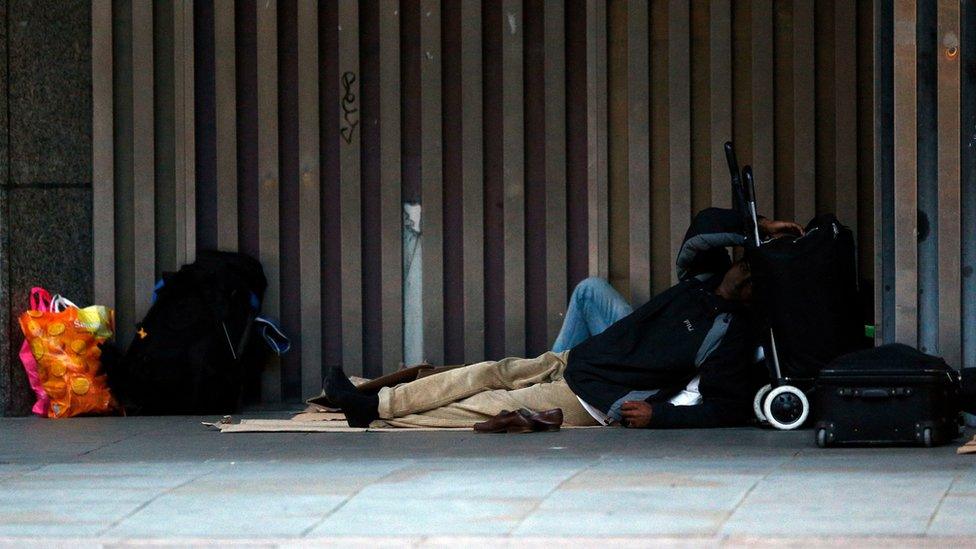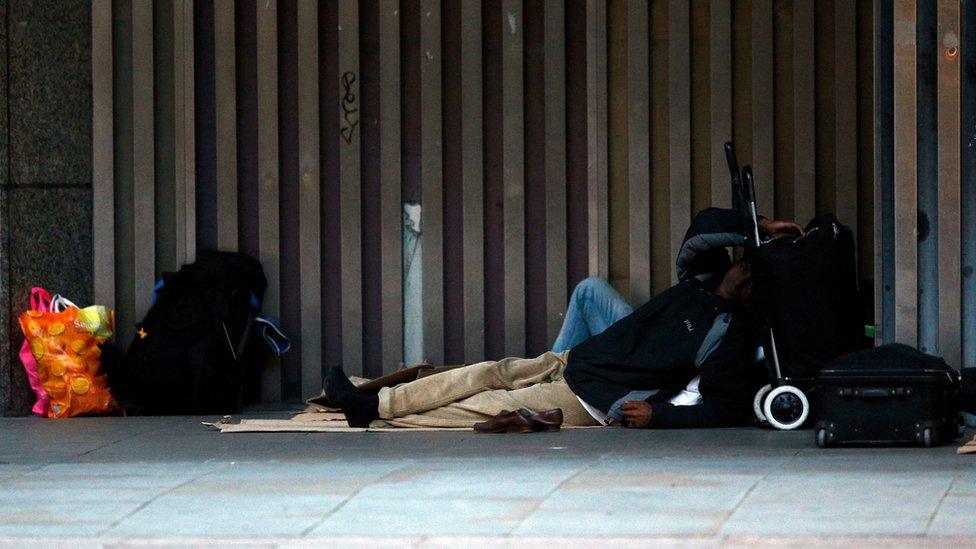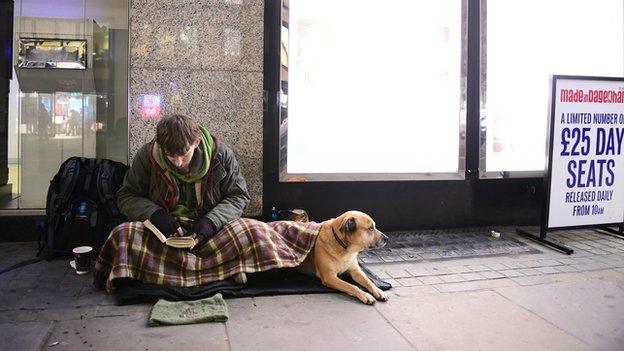Labour says it will end rough sleeping
- Published
- comments

Labour has pledged to end the "national shame" of rough sleeping by doubling the number of homes available for use by homeless people across England.
A future Labour government would ring-fence 4,000 new flats and homes for rough sleepers in cities such as Bristol, Liverpool and Birmingham.
The properties would be let at "genuinely affordable" rents, building on an existing scheme in London.
The government said £500m had been invested to help homeless people.
But Labour's housing spokesman John Healey said rising rough sleeping levels were inexcusable.
Labour has challenged the government to back its plan, which it said would be delivered if it wins power at the next election, scheduled for 2020.
The party says a change in the law in 2011 means homeless people are increasingly housed in insecure private rented homes, making it more likely they will end up back on the streets.
'Unacceptable'
According to government figures published last autumn, based on counts and council estimates, there were 3,569 people estimated to be out on the streets in England on any given night in 2015, compared with 1,768 in 2010.
Announcing the new initiative, Mr Healey - who is shadow cabinet minister with responsibility for housing - said the statistics were unacceptable in a country as "decent and well-off" as the UK.
Labour wants to use the Clearing House scheme, run by St Mungo's charity on behalf of the Greater London Authority, as a model for the rest of the country.
The scheme, established initially in 1991 under John Major's government, provides 3,750 flats in more than 40 housing associations in the capital for permanent use by rough sleepers.
Under Labour's plan, it would be rolled out to the West Midlands and Greater Manchester, as well as Liverpool, Leeds, Bristol, Sheffield and Oxford - with places reserved for British nationals and others who are eligible for social housing.
'National will'
Ahead of an opposition day debate in the Commons designed to draw attention to the issue, Mr Healey said the previous Labour government had achieved "record low levels" of rough sleeping.
"The tragedy of this is this is a problem that can be solved," he told BBC Radio 4's Today programme.
Mr Healey said housing associations should make unoccupied homes available for use and be incentivised by government to build replacements.
He added: "The rapidly rising number of people sleeping in doorways and on park benches shames us all. There can be no excuses - it must end. Full stop.
"The spiralling rise in street homelessness results directly from decisions made by ministers since 2010 on housing, and on funding for charities and councils.
Cash for councils
"A Labour government would put a stop to this national shame and provide homeless people with a place to call home and rebuild their lives."
St Mungo's said its scheme had found stable accommodation for 13,500 people over 25 years, including many vulnerable people with complex health needs.
Ministers have said government funding for homelessless over the next four years had been increased to £139m.
The Department for Communities and Local Government said the number of people recognised as homeless by their local authority was less than half the 2003 peak but acknowledged that "one person without a home is one too many".
A spokesman added: "That's why we've invested £500 million to tackle homelessness and stop it happening in the first place - including £50 million for councils to help rough sleepers."
- Published25 February 2016

- Published4 February 2015
